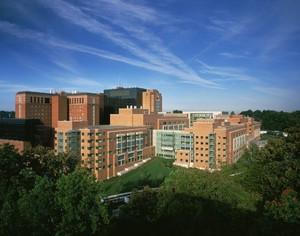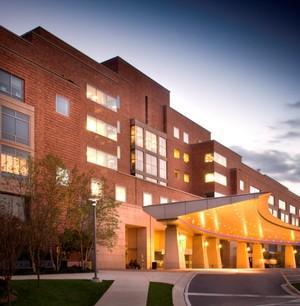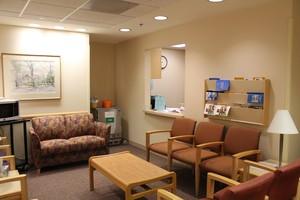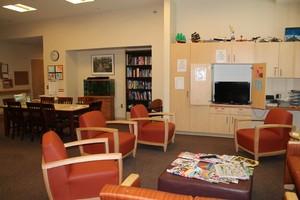Office of the Clinical Director
Description
The OCD’s main purposes are to ensure patient safety and confidentiality, monitor regulatory compliance, assist in policy and resource management, foster training and education, and facilitate the work of intramural clinical investigators. The specific functions of the OCD include:
1) Providing oversight of patient care and patient-related activities within the Division of Intramural Clinical and Biological Research (DICBR), including quality assurance, quality improvement, and human subject protections, thereby ensuring safety and confidentiality
2) Guaranteeing that physicians and other staff not limited to nurse practitioners, physician assistants, clinical social workers, nurses, and clinical psychologists have the required licensing, certification, and credentialing through NIH Clinical Research Center (CRC) and are otherwise appropriately qualified for their clinical contacts with patients
3) Assisting the Scientific Director in allocating NIAAA and NIH CRC resources including Clinical Center Unit space, Clinical Center Office space, and Clinical Center Clinic space assigned to NIAAA and other CRC-administered resources including neuroimaging, clinical pathology, and pharmacy
4) Supporting Fellowship programs and training and career development of OCD staff
In addition to the above functions, the OCD conducts clinical research, including development and implementation of clinical research protocols and research initiatives; monitors NIAAA protocol review through NIH Institutional Review Boards (IRBs); delivers clinical and administrative infrastructure for NIAAA clinical research protocols as well as basic science studies involving clinical specimens; and assists the Scientific Director in strategic planning that focuses on new clinical research opportunities including studies informed by neurobiology, novel approaches to treatments, comorbidity with other diseases, and design of clinical trials. Furthermore, the OCD creates opportunities for young physician scientists in alcohol research by developing programs for training in addictions medicine.
Clinical Infrastructure
Our clinical facilities are located in the Hatfield Clinical Research Center (CRC) on the main NIH campus in Bethesda, MD. These include an outpatient clinic, for purposes of participant screening and evaluation, and outpatient treatment groups, and a 14-bed inpatient unit for treatment and research.
Clinical Research Center, Aerial View

Clinical Research Center, North Entrance

Clinical Research Center, Atrium

1SE Outpatient Clinic

1SE Inpatient Behavioral Health Unit

Clinical Training Programs
We offer a rotation in alcohol use disorder treatment through the Clinical Electives Program. Please see the following link for further details:
NIAAA Clinical Electives Training Program
We also offer an externship program for doctoral students in clinical psychology. More information about the NIAAA Alcohol Use Disorder in Adults Track, which is part of the NIH Clinical Psychology Practicum Program, can be found in the PDF below:
Actively Recruiting Protocols (via clinicaltrials.gov)
NIAAA Clinical Protocols Located at NIH Clinical Center in Bethesda
Regulatory Information
- NIH Office of Human Subjects Research Protections/Human Research Protections Program (OHSRP/HRPP): https://irbo.nih.gov/confluence/
- NIH Office of Human Subjects Research Protections/Human Research Protections Program (OHSRP/HRPP) Policies: https://irbo.nih.gov/confluence/HRPP Policies
Office of the Clinical Director Staff
| Name | Position | |
|---|---|---|
| David Goldman, M.D. |
Clinical Director
|
[email protected] |
| Melanie Schwandt, Ph.D. |
Staff Scientist
|
[email protected] |
| Tommy Gunawan, Ph.D. |
Postdoctoral Visiting Fellow
|
[email protected] |
| Heidi Meyer, B.S. |
Post-Baccalaureate IRTA Fellow
|
[email protected] |
| Avery Arsenault, B.S. |
Post-Baccalaureate IRTA Fellow
|
[email protected] |
| Ava Mascarenhas, B.S. |
Post-Baccalaureate IRTA Fellow
|
[email protected] |
| Katya Scott, B.S., B.A. |
Post-Baccalaureate IRTA Fellow
|
[email protected] |
Clinical Core Members
| Name | Position | |
|---|---|---|
| Nancy Diazgranados, M.D., M.S. |
Deputy Clinical Director
|
[email protected] |
| CAPT LaToya S. Sewell, MSN, FNP-BC |
Family Nurse Practitioner
|
[email protected] |
| Yvonne Horneffer, MSN, CRNP |
Adult Nurse Practitioner
|
[email protected] |
| Tonette Vinson, MSN, CRNP |
Adult Nurse Practitioner
|
[email protected] |
| Beth Lee, MSN, PMH-BC |
Clinical Research Nurse
|
[email protected] |
| Megan Carraco, MA, CCRC |
Recruitment and Outreach Specialist
|
[email protected] |
| Jeremy Luk, Ph.D. |
Clinical Psychologist
|
[email protected] |
| David T. George, M.D. |
Staff Clinician
|
[email protected] |
Regulatory Support and Protocol Navigation Group
| Name | Position | |
|---|---|---|
| Bennett Thilagar, M.D. |
Protocol Monitoring Specialist
|
[email protected] |
| C.F. Bonds-Beeken, B.A. |
Clinical Protocol Coordinator
|
[email protected] |
| Cheryl Jones, B.A. |
Research Psychologist and Protocol Monitor
|
[email protected] |
| Sharon Majchrzak-Hong, M.S. |
Research Support Staff
|
[email protected] |
| Nada Saleh, M.S. |
Clinical Research Coordinator
|
[email protected] |
Clinical Core Laboratory
The NIAAA OCD is located in the Hatfield Clinical Research Center (CRC) on the main NIH campus in Bethesda, MD. The goal of the OCD’s Clinical Core Laboratory (CCL) is to provide a shared laboratory space for NIAAA researchers in the CRC to facilitate clinical research on alcohol use disorder. Space and cost limitations preclude Principal Investigators (PI) from having individual laboratories; thus, the OCD has created the CCL to provide a common environment for performing analysis not covered by the NIH Clinical Center’s Department of Laboratory Medicine.
Under the direction of the OCD, the CCL will assist with technical laboratory training for any PI’s staff members, research assay design, and will provide the framework for core laboratory functions, and perform certain core assays. It will verify that non-CCL staff who may work in the CCL are qualified to do so by training appropriate administrative status and annual certifications and maintain a list of people approved to work in the CCL.
The CCL may also provide support for PI non-core specialized experiments, with OCD approval. Laboratory staff members will work with investigators to provide the most appropriate and cost-effective services to meet their research needs.
Staff
| Name | Position | |
|---|---|---|
| Hui Sun, M.D. |
Senior Molecular Biologist
|
[email protected] |
| Ruslan Damadzic, M.D. |
Biologist
|
[email protected] |
| Erick Singley, B.S. |
Chemist
|
[email protected] |
| Name | Position | |
|---|---|---|
| Reza Momenan, PhD |
Unit Director
|
[email protected] |
| Robin Chholak, Ph.D. |
Postdoctoral Fellow
|
[email protected] |
| Amira Ahamed, BS |
Post Bac IRTA
|
[email protected] |
| Morgan Ford, B.S |
Post Bac IRTA
|
[email protected] |
| Jacob Buursma, B.S. |
Postbac IRTA
|
[email protected] |
| Dan Schratz, B.S. |
Postbac IRTA
|
[email protected] |
| John Ostuni, PhD |
Staff Scientist
|
[email protected] |
| Samantha Fede, PhD |
Special Volunteer
|
[email protected] |


